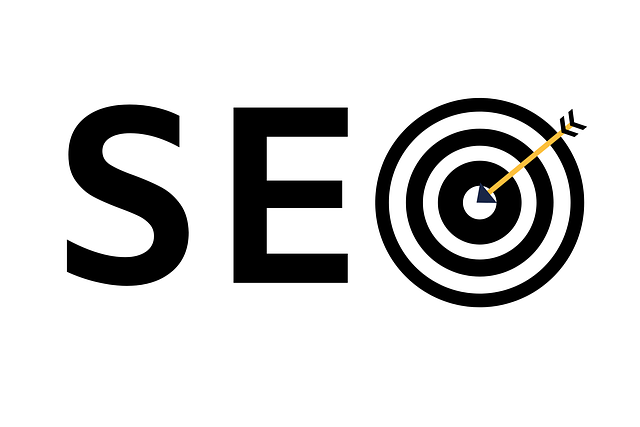By 2025, successful online presence hinges on robust SEO strategies that evolve with technological advancements and user preferences. Key focus areas include:
– Keyword Optimization: Utilize advanced tools for keyword research, prioritizing long-tail keywords with lower competition but higher conversion rates.
– On-Page Optimization: Enhance website visibility through relevant keyword usage in headings, meta descriptions, and content. Optimize for speed, mobile responsiveness, and user experience to reduce bounce rates.
– Content Creation: Produce high-quality, engaging content that offers genuine value and signals authority to search engines. Tailor content to target audience needs while incorporating relevant keywords naturally.
– Link Building: Focus on acquiring high-quality backlinks from authoritative sources through diverse strategies like guest blogging and influencer collaborations.
– Performance Tracking: Regularly measure keyword ranking success using tools like Google Search Console and analytics platforms to inform data-driven SEO decisions.
In 2025, understanding keyword ranking is more crucial than ever for improving SEO strategies. This article navigates the core concept of keyword rankings, exploring trends shaping search engine optimization, such as the evolution of algorithms and user experience prioritization. We delve into essential tools for effective keyword research, on-page optimization techniques, technical SEO improvements, content creation strategies, and innovative link building approaches. By the end, you’ll have actionable insights to measure and analyze your success in enhancing online visibility and improving SEO rankings.
Understanding Keyword Ranking: The Core Concept

Keyword ranking is a fundamental aspect of search engine optimization (SEO), highlighting a website’s position in search results for specific keywords. It’s a dynamic metric that evolves with algorithms and user behavior, making it crucial for businesses to stay updated. The core concept revolves around understanding what users search for and aligning your content to meet those intent-driven queries. By optimizing web pages with relevant keywords, you improve SEO rankings, making your site more visible to the target audience.
Effective keyword ranking strategies involve thorough keyword research to identify high-value terms with potential traffic. This process requires a balance between popular keywords that drive significant volume and long-tail keywords that accurately reflect user search intent. Optimizing on-page elements like titles, meta descriptions, headings, and content using these targeted keywords enhances both the relevance and authority of a webpage, thereby boosting its ranking in search engine results pages (SERPs).
Evolution of SEO in 2025: Trends to Watch

In 2025, Search Engine Optimization (SEO) is set to undergo significant shifts, driven by advancements in technology and changing user behaviors. One notable trend is the increasing emphasis on semantic search, where algorithms will better understand context and intent behind queries, allowing for more precise results. This evolution necessitates a strategic approach to improve SEO rankings, focusing on creating content that resonates with both search engines and users.
Another crucial trend is the integration of artificial intelligence (AI) and machine learning in SEO tools. These technologies enable more accurate data analysis, predictive insights, and personalized recommendations, helping businesses optimize their online presence more efficiently. By leveraging AI-powered tools, marketers can stay ahead of algorithm updates and continuously refine their strategies to maintain strong SEO rankings.
Tools for Effective Keyword Research in the New Year

As we step into 2025, digital marketers are equipped with a plethora of tools to enhance their keyword research and, consequently, improve SEO rankings. Among the most powerful assets are advanced analytics platforms that offer insights into search trends, user behavior, and competitor strategies. These tools allow for in-depth analysis of long-tail keywords, which often carry less competition yet have high conversion potential.
Additionally, AI-driven keyword research tools are gaining popularity due to their ability to predict future trends, suggest relevant topics, and provide data-backed recommendations. By leveraging these resources, content creators can optimize their strategies, ensuring that their online presence is aligned with the ever-evolving digital landscape.
Optimizing On-Page Elements for Higher Rankings

To improve SEO rankings in 2025, optimizing on-page elements is still a key strategy. Search engines like Google place significant emphasis on the content and structure of web pages, making it crucial to incorporate relevant keywords naturally within headings, meta descriptions, and body text. Additionally, enhancing user experience by ensuring fast loading times, mobile responsiveness, and easy navigation can significantly boost rankings.
Effective on-page optimization also involves utilizing header tags (H1, H2, etc.) to organize content hierarchically and internal linking to distribute page authority across your website. By focusing on these elements, you create a strong foundation for improved search engine visibility and higher organic rankings, aligning with the evolving algorithms of major search engines.
Technical SEO Improvements for Enhanced Visibility

In the ever-evolving digital landscape, staying ahead in keyword ranking is paramount for online success in 2025. One of the most effective strategies to improve SEO rankings is through Technical SEO Improvements, which lay the foundation for enhanced visibility and user experience. Optimizing site speed, ensuring mobile responsiveness, and implementing structured data markup are key components that not only help search engines better understand your content but also create a seamless navigation experience for visitors.
By addressing technical aspects, businesses can improve their website’s crawlability, leading to more opportunities for relevant keyword rankings. These improvements are crucial in reducing bounce rates and increasing time spent on-site, as faster loading times and user-friendly interfaces encourage visitors to explore deeper into the site. Consequently, search engines like Google will likely reward these optimized sites with higher placements in search results, driving organic traffic and boosting overall online visibility.
Leveraging User Experience for Better Search Engine Placement

In the ongoing digital landscape, user experience (UX) plays a pivotal role in enhancing search engine optimization (SEO) rankings. As algorithms evolve to prioritize content that offers value and a seamless experience, websites must adapt to meet these new standards. By focusing on UX, businesses can significantly improve their SEO rankings. This involves creating intuitive navigation, ensuring fast page load times, optimizing for mobile users, and implementing a clean, accessible design. Such practices not only attract visitors but also encourage them to stay longer, reducing bounce rates—a key signal search engines consider when ranking websites.
Furthermore, high-quality content remains indispensable. User experience and content go hand in hand; informative, engaging, and well-structured content keeps users interested, encouraging them to explore more of a site’s offerings. Regular updates and fresh content also signal to search engines that a site is active and relevant, further bolstering its SEO standing in 2025 and beyond.
The Role of High-Quality Content Creation

In the competitive digital landscape of 2025, high-quality content creation is no longer an option but a necessity for businesses aiming to improve their SEO rankings and stand out from the crowd. With search engines becoming increasingly sophisticated, they can now better understand user intent and reward content that offers genuine value, authority, and trustworthiness. This means crafting compelling, informative, and engaging articles, blogs, videos, or podcasts that address the specific needs and questions of your target audience. By consistently producing such content, websites can establish themselves as thought leaders in their industry, thereby attracting a loyal following and boosting organic traffic.
The process involves more than just keyword stuffing; it requires a deep understanding of your audience’s demographics, preferences, and pain points. Incorporating relevant keywords naturally within your content ensures better visibility on search engines while maintaining readability for human users. Additionally, high-quality content encourages user engagement through shares, comments, and backlinks, which further strengthen a website’s authority and improve its SEO rankings in the long run. This strategic approach not only enhances online presence but also fosters lasting relationships with customers, solidifying a brand’s position in an ever-evolving digital marketplace.
Exploring Link Building Strategies for 2025

In 2025, link building remains a cornerstone strategy for improving SEO rankings. As search engines become increasingly sophisticated, focusing on high-quality and relevant backlinks is more critical than ever. Modern link-building tactics involve creating engaging content that naturally attracts links from authoritative sources, collaborating with industry influencers, and leveraging guest blogging to reach new audiences.
Understanding the nuances of anchor text diversification, building a diverse backlink profile, and ensuring link sources align with your niche are essential for effective 2025 link-building strategies. By combining these approaches, businesses can enhance their online visibility, drive organic traffic, and ultimately boost search engine rankings.
Measuring and Analyzing Keyword Ranking Success

Measuring and analyzing keyword ranking success is a critical aspect of improving SEO rankings in 2025. Tools like Google Search Console and third-party analytics platforms provide valuable insights into how your website performs against targeted keywords. By tracking organic search traffic, click-through rates (CTRs), and average position, you can identify which strategies are working and where there’s room for improvement. Regularly reviewing these metrics allows you to make data-driven decisions that refine your content strategy, on-page optimization, and link building efforts.
To maximize the impact of these analyses, focus on long-tail keywords that align with user intent. Monitor not only your top-ranking keywords but also those that are gaining traction or showing potential for growth. This comprehensive approach ensures that your SEO efforts are both targeted and adaptable, keeping your website competitive in a dynamic search engine landscape.
